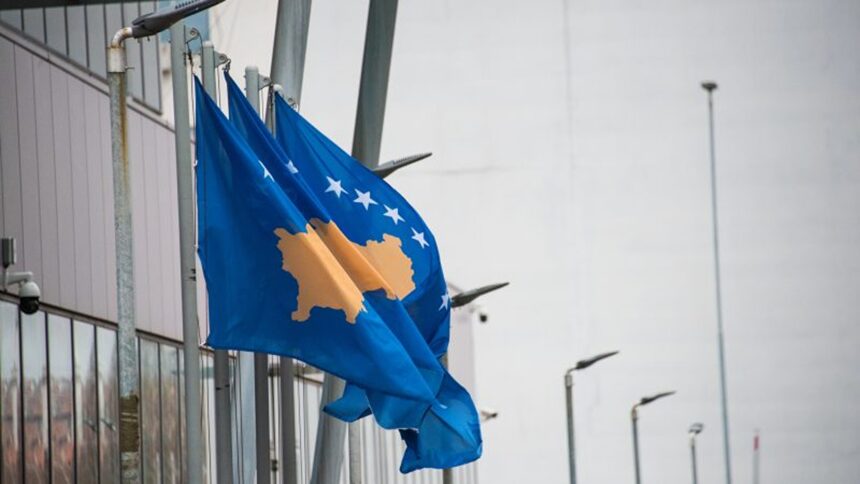The European Commission (EC) published on Tuesday the Progress Report for Kosovo for the period 2024–2025. The report notes that the country has made progress, albeit limited, in several areas but emphasizes the impact of the political deadlock on Kosovo’s European path.
The EU prepares these reports for countries seeking membership in the European bloc.
“The reporting period was influenced by divisive domestic policies and a confrontational campaign ahead of the general elections on 9 February 2025, followed by a post-election political deadlock due to the inability and lack of political will among political parties to find a way to form institutions. The government has been in a caretaker status since 23 March 2025, with limited executive functions for carrying out daily operations,” the report states.
According to the Progress Report, since May of this year, the European Union has taken steps toward the “gradual lifting” of sanctions it imposed on Kosovo in 2023 due to the tense situation in the Serb-majority northern part of the country.
The report also notes that Kosovo has not ratified agreements that would allow it to benefit from the EU Western Balkans Growth Plan “due to the political deadlock.”
Since the 9 February elections, Kosovo has still not formed a new executive, preventing the ratification of international agreements in the Assembly.
The Growth Plan—a €6 billion package—aims to accelerate the path of Western Balkan states toward EU membership. Kosovo is set to receive approximately €900 million, making it the largest per capita beneficiary of these funds.
Political Deadlock and EU Agenda
Regarding the 9 February elections, the report notes that they were held freely and democratically, while the campaign was competitive, “often marked by harsh rhetoric, misuse of public resources, and socio-political pressure in areas with Serb majorities.”
In terms of governance, “challenges in the relationship between municipalities and central institutions persist,” the document states.
“On 5 December 2024, the government approved a number of laws through accelerated procedures, raising concerns about democratic principles. The opposition, critical of this practice, challenged several laws in the Constitutional Court,” the report adds.
Concerning the EU integration process, the report notes that while Kosovo publicly reaffirms its commitment to the EU agenda, divisive domestic policies and lack of prioritization have hindered effective implementation.
Regarding the Assembly, the report states that the previous mandate was characterized “by a lack of political consensus, procedural violations, boycotts, frequent extraordinary sessions, and accelerated legislative procedures.”
“Despite isolated improvements, such as the use of electronic voting and publication of individual MPs’ votes, the Assembly’s overall performance declined,” the Progress Report adds.
The document also highlights the failure of MPs to constitute the Assembly after the 9 February elections, noting that these failures “seriously undermined the functioning of key democratic institutions.” The Assembly was finally constituted at the end of August after several unsuccessful attempts and some Constitutional Court rulings.
Fight Against Corruption
Kosovo has made “limited progress” in fighting corruption, according to the key findings of the Progress Report.
“Kosovo has made further progress in prosecuting high-level corruption cases, resulting in a significant number of final court decisions and convictions, while the overall number of investigations and convictions for lower-level corruption has decreased.”
The European Commission stated that Kosovo still lacks a strategic framework for combating corruption.
“Despite declarations of political commitment to improving anti-corruption measures, there is no coherent approach. To effectively fight corruption at all levels, Kosovo should make better use of existing anti-corruption laws, including the Law on Confiscation. Preventive tools, such as asset declarations and institutional integrity plans, should be better utilized to identify and tackle the roots of corruption.”
The EC recommends that Kosovo further strengthen the capacity of the Anti-Corruption Agency in terms of staffing and expertise, enforce existing legislation, and adopt a national anti-corruption strategy and action plan for 2025–2025 in line with EU best practices and standards.
It is also recommended that Kosovo improve the quality of investigations in high-level corruption cases, increase the capacity of the Special Police Investigations Unit, and enhance cooperation with the Special Prosecution.
Regarding the fight against organized crime, the report finds that Kosovo has made progress in this area.
Judiciary and Freedom of Expression
Kosovo has made limited progress in the functioning of the judiciary, the EC notes, mentioning improvements regarding case delays and the implementation of some digitalization measures.
The report states that Kosovo consulted the Venice Commission on a package of judicial laws, taking steps toward alignment with European standards.
However, the report highlights that the Judicial and Prosecutorial Councils continue to operate without full membership.
“Due to the current political deadlock, delays in drafting justice reforms have negatively affected efforts to strengthen accountability and efficiency mechanisms within the judiciary and prosecution. Inappropriate influence from both internal and external actors is present.”
Regarding fundamental rights, Kosovo must make greater efforts to promote, protect, and implement them. The Progress Report notes improvements in the verification process of diplomas from the University of North Mitrovica and an extension of the verification commission’s mandate.
“Implementation of legislation protecting the rights of minority groups, including language rights, needs strengthening. Some new measures adopted by the government have further weakened access to basic services for these groups. The adoption of the Civil Code and amendments to the Law on Freedom of Religion remain incomplete.”
On freedom of expression, the report mentions that the Constitutional Court annulled the Law on the Independent Media Commission, “providing authorities with clear guidance to draft a new law quickly.”
“While the media landscape is pluralistic, it faces challenges regarding media ownership transparency and financial sustainability. The environment in northern Kosovo remains restrictive, encouraging self-censorship among the public, media, and civil society,” the report states.
This year, according to the Reporters Without Borders index, Kosovo recorded its largest decline in media freedom in the last 15 years, ranking 99th out of 180 countries.
Public Administration Reforms
Regarding reforms in public administration, the report calls on Kosovo to fully address the EU’s recommendations concerning the Law on Public Officials and the Constitutional Court decision on public sector salaries.
Recommendations include increasing civil service capacity through merit-based recruitment, conducting performance evaluations, ensuring gender equality measures, reducing the number of vacant and acting positions, finalizing the classification of positions, and ensuring the proper functioning of the new salary system.
The EC also recommends increasing the number of e-services to reduce administrative burdens.
The reporting period for this document is from 1 September 2024 to 1 September 2025. The report is compiled using data from multiple sources, including the Government of Kosovo, EU member states, European Parliament reports, and information from various international and local NGOs.






